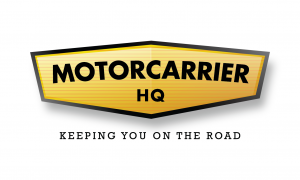September 11, 2023
Build and Improve Your Trucking Company’s Credit Score

Most owner operators have experience with personal credit. The helpful thing is that business credit – for the most part – is pretty similar. Getting trucking credit is important because it’s a huge way to build your business foundation so that you become more established.
On the trucking side, this can help you get equipment such as a truck or trailer. Or, it can help you get a line of credit so you have some capital that you can use for your daily business needs – getting truck and trailer loans can be easy if you have collateral, for example. Eventually, you will need more to secure a building for an office or some storage space for your trailers. So, having access to trucking credit is a key tool for your business.
Here are a few more things to keep in mind on how to secure positive business credit:
Apply for a business credit card
Just like having a personal credit score, your business will start to build one, too. Your business score can be impacted by a poor personal credit score, which is why it’s wise to use a ‘business only’ credit card for your business expenses and keep those two aspects of your life separate as soon as you can. Plus, business expenses could be larger and might require a card with a higher limit.
As your business grows, the type of credit card that fits your business might expand. While small business owners might just need a small business credit card (similar to a consumer credit card), a growing business might need a corporate credit card instead. This Motor Carrier HQ blog post talks about some ways you can use your card for your business.
When you apply for a line of credit or major credit card, having a 2-3 paged business plan shows your lender that you’re serious. If you’ve been in business for a bit, it’s helpful to show about two years’ worth of your financials (bank statements), tax returns, or projections based on the current market when you hand in that business plan.
Track the accuracy of your credit report
Suppliers and creditors will pull your personal credit report so it’s important to keep this accurate before other folks have access to it. While it takes a few minutes to create logins and passwords for the three main credit sites (Experian, TransUnion, and Equifax) it’s worth your business’s financial health in the long run. This is the easiest way to monitor your credit report from the start and monitor identity theft.
You get access to your credit report for free once a year by contacting each of your credit bureaus. This is where most folks find mistakes in their credit report (incorrect addresses, wrong social security number, or even a misspelling of your name). Each credit site has a process you can follow to fix these issues.
Lenders look at everything as a whole, though, and there’s another number that your lender looks at to decide if you’re a good risk: the Dun and Bradstreet Number. This number gives a snapshot of your company financials, your personal credit score, trade credit history (Trade credit is credit your business has with its vendors), etc. and then shows the lender a number. The higher it is, the better it is – just like your credit score. While it’s not as important as your credit score in terms of securing a loan, it’s still a way lenders can measure things.
This is why it’s important to think about your trade credit history, which shows when you pay things off on a revolving basis with various industry vendors. It’s a small but important way to illustrate that you make your payments on time. The lender might ask you for details on certain vendor payments, but probably wouldn’t ever call the vendor themselves. Getting some of those small trade credits to show you on your business account is an easy way to show your banker that you can meet those small financial obligations – especially if you’ve been using credit cards for those purchases and can show that you pay them off in a timely manner.
Keep your personal finances separate from your business finances
As Haulin Assets podcast Ep. 78 explores, you’re really an extension of your business through your personal credit. So, if you don’t have great personal credit, lenders might be worried about it impacting your business credit.
Once your business is more established, the key is to keep these accounts separate because you don’t want your personal credit bringing down your business credit. This action can protect you. And, this practice goes for bills, too: It’s best to separate your accounts so that your personal bills come in your name and the business bills are addressed to the business. On the plus side, this makes it easier for you at tax time.
Pay your bills to keep your credit high
Don’t ever get into the habit of paying your bills late. Late bills can turn into creditors calling, tarnished business reputations, or bankruptcy claims – all which really impacts your credit score. Paying bills before they’re due helps you create a consistent payment practice. And this increases your credit score over time while building trust with your lenders. Consistently paying bills on time is actually one of the biggest scoring factors for your credit score (also known as a FICO store) and makes up about 35% of that score.
Stay within your credit limit
Overextending your credit is something else that can negatively impact your credit score. If you need more credit, it’s best to submit an application or call your bank to increase the limit. But don’t go over the set credit card limit while you wait. Not only does going over put you in hot water with the credit company, but it can take a long time to fix that credit score. Make sure to keep your debt-to-equity ratio balanced so that you’re not even tempted to overextend. A good rule of thumb is to keep your credit balances below 50% of your limit. Doing so will increase your score.
The bank will always look at your account receivables (when you complete a job compared to how long it takes for your client to pay you for it) before the lender will establish a line of credit with you – that’s how they evaluate their level of risk. They want to make sure you’re getting paid in a timely manner (about 30 days after the job is complete). Keeping your income steady means you have more on hand to help with current costs, lessening the chance of having to overextend.
Establishing trucking credit is important and you need good credit to do so. Keep in mind that these tips take time to master, but that being financially prepared – as this Motor Carrier HQ blog talks about, will increase your financial success.
The Haulin Assets podcast shares real stories from drivers who started their own trucking company. This is just one way you can join a community of owner operators learning from each other. Check them out at their website where you can listen to past episodes and get your questions answered.


